"Russian Exceptionalism" by Gary Saul Morson (#NYRB)
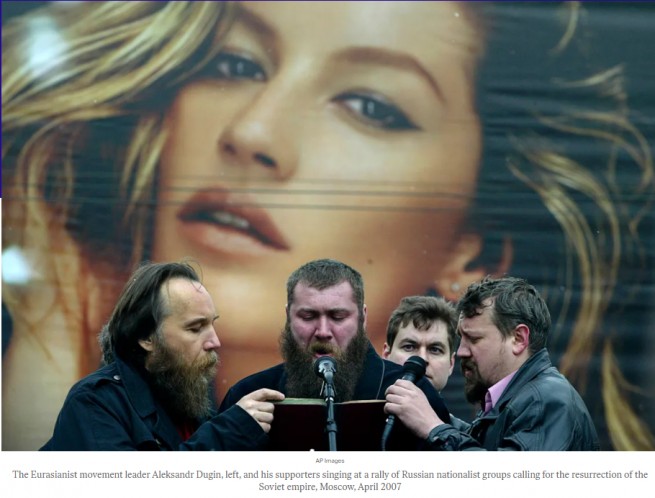
_
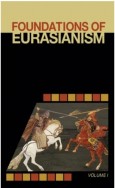
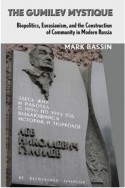
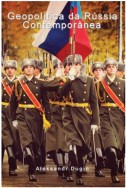
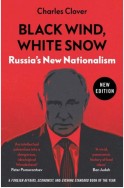
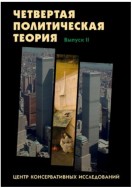
Foundations of Eurasianism translated from the Russian and edited by Jafe Arnold and John Stachelski Prav, 2 volumes, 538 pp., $59.98; $47.98 (paper)
The Gumilev Mystique: Biopolitics, Eurasianism, and the Construction of Community in Modern Russia by Mark Bassin Cornell University Press, 380 pp., $125.00; $22.95 (paper)
Osnovy geopolitiki: Geopoliticheskoe budushchee Rossii [Foundations of Geopolitics: The Geopolitical Future of Russia] by Aleksandr Dugin Moscow: Arktogeia, 600 pp. (1997)
Eurasian Mission: An Introduction to Neo-Eurasianism by Aleksandr Dugin London: Arktos, 179 pp., $23.95 (paper)
The Fourth Political Theory by Aleksandr Dugin London: Arktos, 211 pp., $29.50 (paper)
Black Wind, White Snow: Russia’s New Nationalism by Charles Clover Yale University Press, 360 pp., $18.00 (paper)
_
When Russian troops seized Crimea in 2014, German chancellor Angela Merkel, reporting on her conversation with Vladimir Putin, told President Obama that the Russian president seemed to dwell “in another world.” In a sense she was right: Russians and Westerners see the world quite differently, and our failure to understand Russia’s perspective made its actions seem surprising in 2014 and still more so when it invaded Ukraine in 2022.
How do Russians think about what their country is doing in Ukraine? If we are to grasp why so many have supported the attack on Georgia in 2008, the seizure of Crimea and eastern Ukraine in 2014, and the present war, we need to recognize that their fundamental assumptions differ from ours. Americans, for example, typically take for granted that the state exists to promote the welfare of its citizens, but Russians often believe the opposite. After all, individuals come and go, but Russia remains. And Russia is not just a nation; it is also an idea.
The “Russian idea,” throughout its many changes, has typically been messianic. It explains the world and gives life purpose; it shapes domestic and foreign policy and, more importantly, gives Russians a sense of their “Russianness”—which includes the ability to save the world. In his famous book The Russian Idea (1946), the philosopher Nikolai Berdyaev argued that Bolshevism owes as much to Russian messianism as to Marx. Medieval Russians, he and many others emphasize, often considered themselves the only true Christians. The Byzantines had, at the Council of Florence in 1439, recognized the pope to secure Western aid against the Turks, thereby betraying the Orthodox faith, which is supposedly why they succumbed to the Ottomans in 1453. From that point on, Moscow, the capital of the only independent Orthodox country until the nineteenth century, became the “Third Rome,” the heir to both Rome and Byzantium as the seat of Christendom. Russians were destined to save the world because, as the monk Philotheus explained, “a fourth Rome there will not be.”
Bolshevism inherited this messianic spirit. The Soviet Union would liberate the workers of the world and create the final utopia. It took Stalin to fuse Marxist internationalism with traditional Russian pride: internationalism would be the work of Russia, the savior nation. Stalin drew on a tradition of Russianness defined as a sort of super-nationality. Every nation manifests a special quality, but Russia, as Dostoevsky argued, displays the unique ability to absorb and perfectly express the qualities of all others. Because of this “receptivity” (ozyvchivost’), Dostoevsky concluded, Russians “may have a greater capacity than other nations to embrace the idea of the universal fellowship of humans, of brotherly love.” As proof, he adduces the Spaniards and Englishmen portrayed in Pushkin’s poems, who, he imagines, differ not a whit from actual Spaniards and Englishmen. I am reminded of the witticism that the linguist Roman Jakobson could speak Russian fluently in six languages.
After the fall of the USSR, ideologies competed to replace communism. Liberalism, considered foreign, was overwhelmed by various types of nationalism, one of which, Eurasianism, seems to have achieved the status of a semiofficial ideology. Putin uses Eurasianist phrases, the army’s general staff academy assigns a Eurasianist textbook, and popular culture has embraced its ideas and vocabulary. The better to build an empire, Eurasianism, like Stalinism, carries the banner of anti-imperialism, claiming to unite the world under Russian leadership in order to liberate it from Western cultural colonialism. It could be no other way. As Aleksandr Dugin, the movement’s current leader, explained, “Outside of empire, Russians lose their identity and disappear as a nation.”
Eurasianism began a little over a century ago. Unlike most of its rivals today, it has engaged some truly creative minds. Russian intellectual history, in fact, offers several movements in which powerful thinkers arrive at absurd and often repulsive conclusions. To understand them is to grasp how intelligent people anywhere can accept preposterous beliefs and claim “scientific” certainty for ideas counter to the very spirit of science.
Finding themselves in exile after the revolution and civil war, a group of Russian intellectuals, mostly from the nobility, regarded recent events as a catastrophe unrivaled in history. They experienced profound alienation from both their homeland and the European world in which they found themselves. In his essay “Two Worlds,” Pyotr Savitsky, the movement’s first leader, observed, “Russian exiles are like immigrants ‘from another world,’ like inhabitants of other planets.” Like earlier Russian émigrés, they found a home in the ideology they created.
“Two Worlds” is included in Foundations of Eurasianism, a collection of important texts from the movement, many of which appear in English for the first time. The Bolshevik coup, Savitsky and his fellow émigrés reasoned, simply accelerated the disastrous policy of Westernization pursued by Romanov tsars since Peter the Great. Russia must at last realize that it does not belong to European civilization. It belongs instead to the entirely separate world of “Eurasia.” Culturally, historically, and psychologically, Russians are a steppe people who resemble the Turkic and Mongolian (or “Turanian”) peoples of Central Asia. Far from being a calamity, the Mongol conquest of Russia (roughly 1240–1480) constituted a blessing precisely because it isolated Russia from Europe. It was in this period that the modern Russian character was formed, as a synthesis of the Slavic and the Turanian.
Absolutism, the only rule suitable for steppe peoples dispersed over a vast territory, came to Russia from Genghis Khan and his successors. When the Mongol Empire disintegrated, Russia became its heir. “And hovering over all Russia is the shade of the great Genghis Khan,” wrote the Eurasianist Nikolai Trubetskoy in The Legacy of Genghis Khan (1925). “Whether Russia wants it or not, she remains forever the guardian of this legacy.”
The Eurasianists included two great linguists, Trubetskoy and Jakobson, who discovered the phoneme and are often regarded as the founders of modern structuralism. They devised a theory justifying Eurasianism linguistically. What really matters, they reasoned, is not the common origin of languages, as other linguists and earlier philologists claimed, but their shared destiny. The Pan-Slavists of the nineteenth century had mistakenly proposed that Russians most resembled speakers of other Slavic languages, many of whom had been corrupted by Western culture. Russia’s destiny was to be found elsewhere, in the East. Or as Jakobson observed, “The question ‘to where’ has become more important than ‘from where.’”
Trubetskoy and Jakobson attributed linguistic change to the dynamics of a self-enclosed system. That system is heading somewhere, or, as Trubetskoy explained, “the evolution of a phonemic system at any given moment is directed by the tendency towards a goal.” Balkan languages, they pointed out, were highly diverse in origin. They include not only languages from different branches of Indo-European (Romanian is a Romance language, Serbian is Slavic, Albanian constitutes a branch of its own), but also Turkish, which is not Indo-European at all. And yet the interaction of speakers has led to a number of shared features. In much the same way, they maintained, Russian and Turanian languages form a “language union” bound to draw ever closer. And if that was so, Jakobson and Trubetskoy concluded in a leap of logic, the same must be true of everything else in Russian and Turanian cultures.
Unlike European colonial empire-building, therefore, the Russian conquest of Siberian, Caucasian, and Central Asian peoples was entirely “friendly”—an argument so preposterous it occasioned some of the Eurasianists’ most imaginative historiography. Ukraine proved an obvious sticking point because, from the beginning, Eurasianists had to confront Ukrainian nationalists in the diaspora. From their perspective, all the Eurasianists had demonstrated was that Ukrainians, who share European culture, do not belong with Russians.
What exactly ensured a common destiny for a group of people? The answer was geography, what Savitsky called mestorazvitie—“topogenesis” or, more literally, “place-development.” Geographical environment shapes culture, he argued, so the peoples of the Eurasian Steppe, which extends from Hungary to Manchuria, are bound to display common psychology and therefore to have harmonious relations. By the same token, Savitsky reasoned, an unbridgeable chasm must always divide “oceanic” and “continental” cultures. The former embrace risk, entrepreneurship, and individualism—think of Renaissance Italy or republican Holland or imperial Britain—while the latter prefer tradition, conservatism, and collectivism. The continental world favors centralized authoritarian rule, which is why “geography itself” has preordained Russian rule over the vast territory extending from Poland to the Pacific. “Continentality” dictates isolation from alien influence through economic and social “autarky,” or self-sufficiency.
Above all, this “Russian world” must acknowledge that its greatest enemy is and always will be Western liberalism. The Bolsheviks mistakenly adopted Western, atheistic Marxism, but they correctly established total control over individual lives in the name of a higher ideal. “Modern democracy must give way to ideocracy,” Trubetskoy argued, referring to rule based on abstract ideals. Pluralist democracy entails no all-encompassing and uniform philosophy of life, but ideocracy does. Therefore, “ideocracy presupposes the selection of the ruling echelon according to its faithfulness to a single common governing idea…united in a single ideological state organization” that will “control all aspects of life.” This collectivism ensures that the “last traces of individualism will disappear” and that a common outlook will “become the inalienable ingredient” of everyone’s psyche. From the start, Eurasianism was not an alternative to totalitarianism but a different form of it.
Western liberals, Trubetskoy explained, affirm putatively universal values like human rights, progress, and cosmopolitanism. Viewing people as individuals, they scorn national cultures and consider respect for tradition to be retrograde. The superiority of Western civilization, they presume, lies in its discovery of universals, which are supposedly as free from local prejudice as logic and mathematics. And so Westerners present distinctively European values as objective. Those non-Europeans who accept this claim, as many in Russia and other modernizing cultures have, aspire to become more “civilized” by thoroughly Westernizing, an impossible task necessarily leading to self-contempt.
The book that catalyzed the Eurasianist movement, Trubetskoy’s Europe and Mankind (1920)—selected excerpts of which appear in the first volume of Foundations of Eurasianism—maintains “the equivalence and qualitative incommensurability of all cultures and all peoples of the globe…. There are no higher and lower cultures, there are only similar and dissimilar.” European arguments to the contrary are but “a means of deceiving people and justifying the imperialistic and colonial policies…of the ‘great powers’”—that is, all the great powers but Russia.
Remarkably enough, Trubetskoy’s relativism leads him to the conclusion that because cultures are equal, Europeans, who suppose otherwise, are worse than all others. All are equal, but some are less equal than others. The non-Western world must therefore unite against Europeans, because for relativists “the consequences of Europeanization” are “an absolute evil.” All countries must recognize that “there is only one true confrontation: that between the Romano-Germanics and all other peoples of the world, between Europe and Mankind.”
Lev Gumilev, who corresponded with Savitsky, developed Eurasianist ideas in imaginative and at times ridiculous ways. The son of two great poets, Nikolai Gumilev and Anna Akhmatova, Gumilev boasted a pedigree that commanded attention. In a country where literature enjoyed immense prestige, the persecution of his parents—his father was shot and his mother became the target of nationwide denunciation—only added to Gumilev’s inherited charisma, enhanced still more by two terms in the Gulag. (One “for papa” and one “for mama,” he liked to say.) Born in 1912, Gumilev became a specialist in the Mongols, Turks, and other peoples of Central Asia. His engagingly written books, some of which could be published only during glasnost, challenged traditional accounts of Russian history and developed his own form of ethnology, which he called a new hard science.
As Mark Bassin points out in his illuminating book The Gumilev Mystique, it would be hard to overstate Gumilev’s influence. He eventually enjoyed support at high levels of the Communist Party, the General Staff of the Armed Forces, and the Ministry of Foreign Affairs. In 1995 the State Duma awarded one of his books on Russian history a prestigious prize. Approved by the Ministry of Education of the Russian Federation as a high school textbook, it was reissued in a print run of 100,000. Gumilev’s celebration of Central Asian peoples also made him a hero of Kazakhstan’s former autocratic president Nursultan Nazarbaev. In the Kazakh capital, Astana, students attend Gumilev Eurasian National University. On the hundredth anniversary of Gumilev’s birth, Nazarbaev named a mountain for him (Gumilev Peak). In Russia, Gumilev’s ideas penetrate everywhere, and his central terms—“passionarity,” “complementary,” “chimaera,” and others—have entered common usage.
Gumilev arrived at his core idea in the Gulag, where, without paper, he somehow (the story goes) contrived to write a book on the paper used to wrap food supplies. His theories represent a fantastic excursion into pseudoscience, which thrives in Russia even among serious scholars and scientists. In Gumilev’s view, an ethnic group, which he calls an “ethnos” (“ethnoi” in the plural), is not a social but a biological phenomenon, analogous to a herd or flock among animals. Developing according to biochemical laws, an ethnos constitutes “a biophysical reality…. Ethnic belonging, which manifests itself in the human consciousness, is not a product of…consciousness.”
Gumilev argues that ethnoi, because they are rooted in biology, reflect the human instinct to divide people into “us” and “them.” It followed that, Enlightenment thinkers notwithstanding, the sense of belonging cannot be extended to humanity as a whole, because then there would be no “them” to give “us” meaning. In much the same spirit, Trubetskoy had maintained, by dubious analogy, that just as phonemes are meaningful only by opposition to other phonemes, so “humanity” cannot be a meaningful group, because there would be nothing to which it could be opposed.
Gumilev reasoned that ethnogenesis (the formation of ethnoi) requires enormous
work (in the physical sense)…. And to do that work, energy is needed, very ordinary energy measurable in kilogram-meters or calories…. Let me explain. The stone blocks at the top of a pyramid were not raised by [conscious] ethnic self-awareness but by the muscle power of Egyptian workers on the principle of heave-ho!
That energy must come from somewhere. It cannot come from the consciousness of individuals or their immediate surroundings; such a view, according to Gumilev, “infringes the law of the conservation of energy.” It followed for him that the energy must come from outer space. Otherwise, “entropy…would have smoothed out all ethnic differences and converted the diversity of the human race into a featureless anthroposphere.” The earth receives “more energy from outer space than is needed to maintain equilibrium of the biosphere,” and it is that surplus energy on which ethnogenesis draws.
The process works like this: during some periods of the solar cycle, “the defensive qualities of the ionosphere are reduced, allowing individual quants or bundles of energy to approach near to the earth’s surface.” This energy causes genetic mutations, giving rise to a few people endowed with great “passionarity.” People with passionarity display the ability to absorb large amounts of energy from their surroundings. As lemmings or swarms of locusts sometimes expend great energy in self-destruction, so “passionaries” overcome the survival instinct. They take risks to accomplish great deeds for no reason except to accomplish them. Why did Alexander the Great and his army march all the way to India when they could not hope to bring their booty home to Macedonia? They must have done so out of passionarity. Gumilev regarded passionarity as his greatest discovery, since it explains what no social theory ever could. Heroism, self-sacrifice, supreme devotion to an ideal regardless of the consequence to oneself, loved ones, or friends: these actions, which shape the world in lasting ways, cannot be explained by rational, social-scientific theories because they are not rational, and their origin is biological rather than social.
Using “induction,” passionaries attract others, who attract still others, until an ethnic group forms. Anyone, regardless of race, may be drawn to a passionary, and so ethnoi are rarely homogeneous in origin. (This is how Gumilev refutes accusations of racism.) It is not race that links people into an ethnos; it is “behavioral stereotype.” A certain behavioral repertoire seems natural to members of one ethnos but odd to members of others. Bassin mentions Gumilev’s example of a Russian, a Tatar, a German, and someone from the Caucasus on a train who encounter a drunken youth harassing a woman: “I know, and we all know, that the Russian will say to him, ‘hey you, pal, you’re going to get caught. Look, get off at the next stop’”; the German will use the emergency brake and call the police; the Caucasian will “simply lose control and hit the offender in the face”; and the Tatar will just “turn away in silence.” Behavioral stereotypes develop as responses to the natural environment, and so steppe people are bound to differ from sea people. Gumilev here adapts Savitsky’s idea of topogenesis.
Entropy, Gumilev claims, ensures that passionary energy diminishes at a mathematically calculable rate. That is why all ethnoi pass through a series of precisely defined stages until, after about 1,500 years, they become mere “relicts,” as happened to the ancient Khazars of Central Asia and the Yakuts of Siberia.
If an ethnos lives among other ethnoi, relations may be either friendly or hostile, depending on their behavioral stereotypes and according to natural laws. Groups well adapted to each other enjoy “complementarity.” That, Gumilev says, is emphatically the case with Russians and other steppe peoples.
Most earlier historians considered Russia’s Mongol rulers (“the Golden Horde”) a barbaric and hostile force, an error Gumilev calls the “Black Legend.” It was fabricated, like almost everything else Gumilev needs to explain away, by evil Westerners intent on dividing Slavic and Turkic peoples. To begin with, in Gumilev’s account Russians were not conquered by the Mongols (whose armies destroyed entire cities) but submitted voluntarily. If not for the Mongols, Russia, like Western Slavs, would have succumbed to the domination of Westerners intent on destroying their culture.
Gumilev claims that the Russian ethnos was formed at the Battle of Kulikovo in 1380, traditionally represented as Russia’s first great victory over the Mongols. Gumilev offers an entirely different account of the battle. The Russians fought a mere faction of the Horde, ruled by the “illegitimate” military commander Mamai, who enjoyed support from Genoese merchants. By defeating Mamai, the Russians demonstrated their loyalty to the Horde’s legitimate ruler, Tokhtamysh. To be sure, Tokhtamysh went on to burn Moscow, but Gumilev proves creative enough to explain away this inconvenient fact as well.
If ethnoi are biological phenomena, then it is essential to maintain their gene pool, and so exogamy must be avoided. Sometimes crossbreeding creates a new ethnos, but usually it deforms or destroys an existing one. “But it never happens without a trace,” Gumilev writes. “That is why neglect of ethnology, be it on the scale of state or country, tribal union, or monogamous family, must be qualified as irresponsibility, criminal in regard to the offspring.”
The worst thing that can happen to an ethnos is transformation into a “chimaera,” by which Gumilev meant not a mirage but a monster—“a combination of elements not organically united,” like a beast with lion’s head, goat’s body, and serpent’s tail. “An example of a chimeric relationship in zoology,” he explains,
is that which forms when tapeworms are present inside an animal’s organs…. By necessitating an increased inflow of nutrition and introducing its hormones into the blood and bile of its host organism, the parasite alters its host’s biochemistry.
In much the same way, a parasite ethnos “sucks its sustenance out of the indigenous ethnos.” Jews are Gumilev’s prime example, and his hatred of them amounts to an obsession.
The Babylonian Empire fell, Gumilev supposes, because the king’s advisers were Jews who, divorced from geography, neglected to maintain Babylon’s irrigation networks, which led to crop failures and civilizational collapse. What’s more, Jews married off their women to produce generations of “‘métis’ or ‘bastard’ offspring,” who eventually seized power in the name of the intruder.
Whether Jewish or not, chimeric intruders typically reject the material world, as the various gnostic groups—including Manichaeans, Zoroastrian Mazdaists, and Albigensians—have done. Embracing “vampire concepts that embody a deep and diabolical sense of purpose,” they subscribe to a life-denying worldview detached from the soil, fetishize the written word, adopt lies on principle, and maintain a different morality for themselves than for outsiders. Gumilev claims that the Talmud and Kabbalah, which he evidently knows only from the accounts of Russian antisemites, state that the Jewish God who spoke with Moses was really a demon, Satan’s best friend. He also claims that the Talmud instructs Jews to “kill the best of the goyim.” It is a remarkable feature of Russian thought that creative minds keep inventing new theories demonizing Jews.
During the Yeltsin years, which many called Russia’s “Weimar Era,” the young, bohemian Aleksandr Dugin flirted with occultist and extreme rightist ideas. He seems to have been especially fond of Nazis and adopted the nom de plume Hans Sievers, an allusion to Wolfram Sievers, whom Himmler made director of a group studying the paranormal. Eventually Dugin found his way to Eurasianism, which he synthesized with the work of practitioners of geopolitics from Halford Mackinder on, along with structuralists, postmodernists (Jean-François Lyotard, Gilles Deleuze), French “traditionalists” (René Guénon and Alain de Benoist), and various Nazis or ex-Nazis, including Julius Evola, Carl Schmitt, and, of course, Martin Heidegger.
It is routine to refer to Dugin as “well-read,” but it would be more accurate to say “well-skimmed.” He is one of those pseudoprofound commentators who love to call things “ontological” and “metaphysical” while endlessly dropping the names of thinkers, with many of whom he has a flyleaf acquaintance. If there are fashionable terms to deploy—“rhizome,” “bricolage,” “Dasein”—he is sure to pile them one on another. He speaks of the “hermeneutic circle”—the paradox that we interpret a whole work in reference to the parts and the parts in reference to the whole—as if it meant a worldview. He baffles with what might be called the emperor’s new prose:
The new age of modernity, with its linear vectors of progress and with its postmodern contortions,…are taking us away into the labyrinths of the disintegration of individual reality and to the rhizomatic subject or post-subject.
Real, if wacko, thinkers like Trubetskoy, who identified the phoneme and helped found structuralism, and Gumilev, who was a genuine scholar of the Mongols and peoples of Central Asia, would probably be embarrassed that Dugin is their successor.
Dugin’s most influential book, The Foundations of Geopolitics, began as a lecture series at the General Staff Academy and continues to be assigned at military universities. As the historian John Dunlop observed, “There has probably not been another book published in Russia during the post-Communist period which has exerted a comparable influence on Russian military, police, and statist foreign policy elites.” And not just elites: Dugin’s ideas—cited, recycled, adapted, and plagiarized—fill bookstores and saturate mass media. In the late 1990s the Duma formed a geopolitics committee, and Dugin became an adviser to the Duma’s speaker, Gennady Seleznev.
Dugin stresses Eurasianism’s apocalyptic element. Russians face a final battle of good and evil, a “cultural, philosophical, ontological, and eschatological struggle.” Evil is variously identified as Atlanticism (opposed to Eurasianism “in everything”), modernity (“an absolute evil”), America (“a country of absolute evil”), and above all liberalism, which he says is powerful today because evil is strongest at the end of days. Gumilev imagined he was doing science, but Dugin expresses animus toward “materialistic physics,” Francis Bacon, and “the supremacy of quantitative concepts and secular theories.” In his introduction to Eurasian Mission he also rejects “homogenous space,” “linear time,” and “progress.”
Logic is not his strong point. Progress, he explains, is a form of racism because the assertion that the present is superior to the past constitutes
humiliation of all those who lived in the past, an insult to the honor and dignity of our ancestors…and a violation of the rights of the dead…. The ideology of progress represents the moral genocide of past generations—in other words, real racism.
In Dugin’s view, Eurasianism, suitably adapted, provides the best ideology of resistance to liberalism. Russia must lead not only other steppe peoples but everyone oppressed by the West; in this sense, Eurasia is everywhere. Dugin calls this updated Eurasianism “the fourth political theory,” which he elaborates in his book of that name. Totally rejecting the first theory, liberalism, Eurasianism borrows generously from the other two, communism and fascism. Like Lenin and Stalin, Dugin advocates using any means whatsoever in the struggle against “blood-sucking American, oligarchic, liberal scum.” And we must get over making Hitler into a bogeyman, because apart from its antisemitism, Nazism was no worse, and maybe better, than liberalism.
Like earlier Eurasianists, Dugin argues that all cultures are equal and incommensurable, but he makes an exception for Americans, who possess no “deep identity” because they lack “a pre-modern legacy.” With similar disregard for contradiction, Dugin demands that no country should dominate others while arguing that Russia must wield total power in the fight against America. If Uzbekistan and Turkmenistan don’t want to be united with Russia, that is only “to exploit their recently achieved national sovereignty for their own gain”—which, one might think, is what nations are supposed to do.
Dugin expresses special hostility to independent Ukraine because, despite its cultural and linguistic closeness to Russia, it has treasonously betrayed its proper role as part of the Russian world. In 2014 he called for the conquest of eastern Ukraine months before it happened and even revived the eighteenth-century term for the region, Novorossiya, before the Kremlin started using it. He told one reporter, “Kill! Kill! Kill! There can be no other discussion.” He now demands that Putin wage war more ruthlessly.
Far from distorting earlier Eurasianism, Dugin’s bloodthirstiness represents its predictable development. As has happened so often in its history, Russia demonstrates the consequence of defining oneself with an idea. In the name of justice, one creates an ideocracy and divides the world into absolute good and evil. Immediate neighbors suffer first.
To an extent Westerners have not appreciated, concern with national identity has shaped Russia’s foreign policy over the past decade and accounts for the dramatic shift in its behavior from peaceful concern with economic development to aggressive efforts to dominate its neighbors. Since Putin resumed the presidency in 2012, Eurasianist vocabulary has populated his speeches, newspaper articles, and television appearances. Russia’s elites have embraced Eurasianist concepts defining Russia as a distinct “civilization.” The West has become the liberal “Atlantic” intent on destroying Russian culture, while Russian patriotism is now a matter of “passionarity.”
In Black Wind, White Snow, Charles Clover astutely points out that Putin has been content to let the Baltic states go, even though they have large Russian populations, but not Georgia, Kazakhstan, or especially Ukraine. The dividing line Putin has drawn between “ours” and “not ours,” Clover points out, follows “a strategic and cultural logic strikingly in tune with the theories of the Eurasianists.” The Baltic states are part of European civilization, but Ukraine belongs to Eurasia.
Time and again, Putin has stressed that Eurasian cultures belong together in a single polity under Russian leadership. He has regarded his new “Eurasian Union” with Kazakhstan not just as a trade agreement but also, and more importantly, as the union of peoples who belong together as a single “civilization.” The identity of that civilization, he explained, is based not on ethnicity but on culture—“on the preservation of the Russian cultural dominance, the carriers of which are not only ethnic Russian, but all carriers of such identity regardless of Russian nationality.” This concept of a broader civilizational identity that transcends nationality but still entails Russian dominance is a core idea of Eurasianism.
More often than not, Putin has defined Eurasian civilization negatively, as the opposite of decadent liberalism. In a 2019 interview with the Financial Times, he explained that “the liberal idea” had “outlived its purpose” and “become obsolete.” But it is still dangerous because Western leaders presume that their values are the only rational ones. Expanding NATO to the Russian border and seeking to incorporate traditionally Russian territory, they equate their interests with humanity’s and take for granted that they can “simply dictate anything to anyone just like they have been attempting to do over the recent decades.” On May 9, 2023—Russia’s most important holiday, celebrating the defeat of Nazi Germany—Putin appealed to Russian patriotism in its current fight against liberalism and the West in Ukraine. The West hates Russia, he said, precisely because it represents different civilizational values. “Western globalist elites,” Putin insisted, resent having their supposedly universal values challenged and in response have provoked “bloody conflicts, hatred, Russophobia.”
In 2016 Foreign Minister Sergei Lavrov, in an article citing Gumilev, claimed Russia’s actions in Ukraine were about resisting Western attempts “to deprive Russian lands of their identity.” Contrary to the worldview Merkel and other enlightened Westerners take for granted, existential civilizational conflict, from the Eurasianist perspective, is regarded as inevitable. In that conflict, Russia is the victim of arrogant Westerners seeking to impose their alien, “satanic” values on the rest of humanity. Its struggle, in this view, is not about conquest but the preservation of its very identity. Ultimately, it is also the fight of all non-Western powers who want to maintain their own distinct civilizations. “We will protect the diversity of the world,” Putin explained in a tone that demonstrates that, now as in the remote past, Russian messianism still thrives.
Gary Saul Morson
Gary Saul Morson is the Lawrence B. Dumas Professor of the Arts and Humanities and a Professor of Slavic Languages and Literatures at Northwestern. His latest book, Wonder Confronts Certainty: Russian Writers on the Timeless Questions and Why Their Answers Matter, was published last year. (February 2024)
Source:
https://www.nybooks.com/articles/2024/02/22/russian-exceptionalism-foundations-of-eurasianism/

